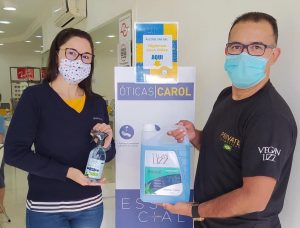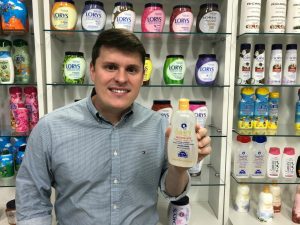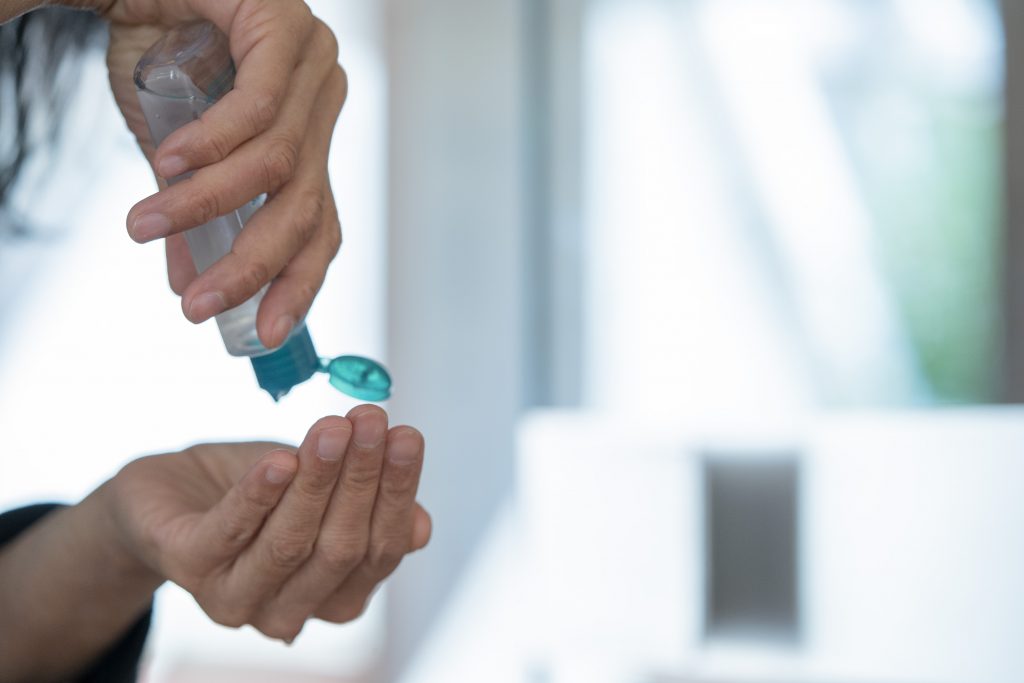São Paulo – Brazilian cosmetic manufacturers found in the production of hand sanitizers a way to mitigate the negative impacts of the COVID-19 crisis on their businesses and now start to try breaking into foreign markets with their product. Hand sanitizer exports had been banned in Brazil since late March by a determination of the federal government but were cleared around two weeks ago.
Mairibel, Sther Cosméticos and Private Cosméticos, the three of them based in the state of São Paulo, are some of the industries that started working to sell their hand sanitizers abroad. The markets they want to export to include the Arabs. Although the big wave of the pandemic has passed in several countries, the companies believe that the consumption of hand sanitizers will continue to be high in Brazil and elsewhere, particularly because of the hygiene measures adopted to reopen commercial activities.
Private
Valinhos-based Private didn’t use to manufacture hand sanitizers but had the know-how and started manufacturing it in March, given the demand arising from the COVID-19 pandemic. As the demand for beauty products went down, the production of hand sanitizers was key and accounted for 20% of the business. “It was extremely important for us to stand out in the market,” Private CEO Márcio Antônio Espíndola told ANBA.

Private Cosméticos manufactures both its own products and third-party items, especially for big department stores in Brazil. The products range from personal hygiene items such as soap bars, to hair products such as protein and keratin, and skin products like body lotions.
The hand sanitizer started being produced by Private with the same premium concept used in its other products and is made from carbo-mer. The company also sells liquid alcohol. “We kept the hand sanitizer at the market’s highest quality standards,” Espíndola says. The product is sold in supermarkets and drugstores in Brazil, particularly in the region where Private is based, in the interior of São Paulo.
As exports have been cleared, Espíndola will offer the hand sanitizer to the foreign clients he already serves with his other products. “And of course, wherever the demand comes from, we can meet it,” he said. The company exports to the Arab and European markets. Among the Arab countries, sales go to countries like Libya, Saudi Arabia, United Arab Emirates, Iraq, and Kuwait, the CEO says.
Sther
Jundiaí-based Sther Cosméticos had hand sanitizers in its portfolio, although it was not producing it, and planed on relaunching the product in the beginning of the year at a lower cost, predicting a demand from the consumer due to H1N1. When news came about COVID-19, the process was accelerated, and the product hit the shelves. According to Sther Cosméticos commercial director Arthur Eduardo Elias Ricardi, 20,000 boxes of hand sanitizers were sold in ten days in late March, then another 60,000 boxes in April. Sales are still high.

The hand sanitizer is sold by Sther under the brand Suavity. The company also manufactures liquid alcohol and produces the two items for third parties. At first, the company produced the hand sanitizer from carbo-mer but started using pulp due to the shortage of the first. Soon, both types of products will be offered, Ricardi said.
Sther manufactures children’s shampoo, conditioner and combing cream, as well as general hygiene, hair and body products, such as moisturizing lotion, liquid soap, and body oil, among others. The brands are Suavity, Ricardi and Lorys, all under Sther. Since all products are liquid, they can be made for third parties, according to Ricardi.
The company exports to the UAE, Pakistan, Tanzania, Kenya, Angola, Bolivia, Paraguay, United States, Costa Rica, and Bulgaria, and used to sell to Egypt. According to Ricardi, Sther received demands for hand sanitizers from foreign countries when exports were banned. Now, with the ban lifted, he wants to meet those demands. There is already an order from Costa Rica. “We offered it to the Arabs but most of it was met by China,” Ricardi said. But he will seek out more clients in the region.
Sther will keep producing hand sanitizers and believes the demand will continue. Ricardi said that this demand will come primarily from the commerce that is reopening. “Every small shop will consume hand sanitizers. It’s not the people that stay self-locked that are the large hand sanitizer consumers, it’s those that have to go outside,” he says.
Mairibel
Artur Nogueira-based Mairibel went so far as shutting its doors when the COVID-19 pandemic started to spread in Brazil. But its executives soon noticed the demand for alcohol and hand sanitizer in the Brazilian market and proposed to start production. Commercial manager Juraci Marques de Oliveira says that the company had manufactured the product in 2012 to fight H1N1.

The company started manufacturing 14,000 500-ml hand sanitizer bottles and sold 10,000 in the first call Oliveira made. “Then we bought more raw material, a lot of alcohol, and started producing large quantities to serve supermarkets and drugstores,” Oliveira said.
According to him, the goal was not making money, but keep the company running and help the society goes through this difficult moment. “We were blessed by this strategy because people found the product cheap and high-quality and keep asking for it to this day,” he says.
The production served wholesales, supermarkets and drugstores, and now, as several activities resume in Brazil, churches, schools and departments of education are calling, according to Oliveira. The manager says that the hand sanitizer sales were key for the company between April 5 to 15, as many clients paid in cash. “That is what saved us here,” he says.
Mairibel manufactures hygiene and beauty products under the brands Mairibel, Reference Collor, Hidratylife and Encantos da Natureza. The company’s catalog includes over 150 hair and skin products, such as moisturizing masks, essential oils, shampoos, dyes, and others. Most of them are hair products, particularly designed for afro hair. Encantos da Natureza is for the premium segment and is all-natural.
The hand sanitizer is sold under the brands Mairibel and Hidratylife and made from carbo-mer imported from the US. Mairibel exports small volumes to seven Arab countries through an intermediary. “We’re motivated,” Oliveira says about the Arab market. Now, besides planning on increase foreign sales of its products to the Arabs, the company seeks out clients in the region for the hand sanitizer.
Cleared exports
Since March 19, to export hand sanitizers and other COVID-19-related products, the companies needed to have a special license that was granted only if Brazil’s state system was not needing the product. As the market is well supplied, this requirement was lifted in June 22, facilitating exports. The companies mentioned in the report are members of the Arab Brazilian Chamber of Commerce.
Translated by Guilherme Miranda




